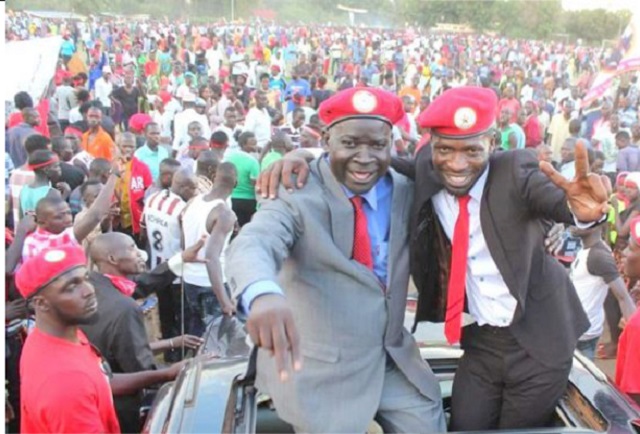
Ogwal says that her troubles had nothing to do with the masses but the fact that a group within the party targeted her and a group of other UPC leaders, during the big storm that rocked UPC before and after the death of Obote. Indeed, around that time UPC lost several senior leaders to both the ruling NRM and FDC.
When she later joined the FDC, Ogwal says she saw colleagues encountering similar problems as she had encountered in UPC.
She cites the cases of Kitgum Municipality MP Beatrice Anywar and Aswa County MP Reagan Okumu as some of the contradictions that have caused problems for political parties.
Ahead of the 2016 elections, Anywar was gunning for Kitgum Municipality but apparently, FDC handpicked Denis Onekalit as FDC flag bearer.
“There were no primaries. Worst of all my nomination papers, which had been signed by FDC members, were stolen at the last minute when I was seeing Dr Kizza Besigye at a hotel in Kitgum,” Anywar told The Observer in July 2016, “I had to go back to the EC and pick other forms with a day to nomination. I am independent against my own wish because my party messed me up.”
Meanwhile, Reagan Okumu, then the FDC Vice Chairman for northern Uganda was in 2016 forced to contest as an independent after Gulu High Court in December 2015 declared Christopher Acire to be the rightfully nominated FDC flagbearer for Aswa County.
Okumu won the election as an Independent but is still recognised as an executive member of FDC. This, critics have pointed out, contradicts the party constitution.
But Ogwal says cases like these explain why you have enlarging numbers of Independent legislators in parliament.
“People are treated unfairly by parties,” Ogwal told The Independent, “That is partly why they lose primaries but win the general elections. This is the experience we have been witnessing. That is why for as long as we do not have true internal democracy with in parties, we should not take away the option for people to run as Independents.”
But for both the leaders of the opposition and the ruling party, Independents are becoming a real threat and one they must deal with now.
Numbers show Independents strength
A look at the numbers confirms the fear that parties have of the growing presence of Independents in parliament.
Since the return of multiparty politics in 2005, Uganda has had three parliamentary elections—2006, 2011 and 2016.
In 2006, the ruling party had 206 MPs out of a total of 319 MPs, it grew the number to 263 MPs out of 375 MPs in 2011, and 293 out of 426 MPs in 2016.
In terms of control, the NRM party controlled 64% of parliament in 2006, then 70% in 2011 and 68% in 2016. In terms of growth, however, these figures mean that the party grew its control by 28% between 2006 and 2011 and then by a measly 11% between 2011 and 2016.
The second biggest party, the Forum for Democratic Change (FDC) had 37 MPs or 11% of parliament in 2006, this fell to 34 MPs or 9% in 2011 and up 36 MPs or 8.4% in 2016.
Between 2006 and 2011, therefore, FDC’s growth fell by 8.1% and grew by a miserly 5.8% between 2011 and 2016.
The Independents, meanwhile, have been on the roll. They were only 37 (11%) in 2006, grew to 43 (11.4%) in 2011 and then to 66 (15%) in 2016.
In terms of growth, therefore, the Independents grew by 16% between 2006 and 2011 and in the last election, by a staggering 53%. If they were to maintain that streak, they could grow by a whopping 90% in 2021. If we were to extrapolate, there is no doubt, which would bring their numbers to 125 MPs or 30% of parliament. With that, the Independents can start calling the shots.
It is not clear whether political parties have made these calculations. But even if they have not, the analysis of growth of strength offers a window into why both the ruling NRM and other political parties are in panic mode over independents.
 The Independent Uganda: You get the Truth we Pay the Price
The Independent Uganda: You get the Truth we Pay the Price



